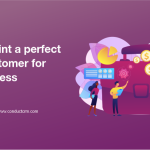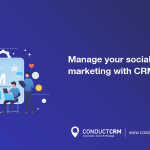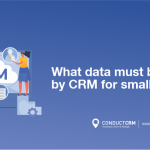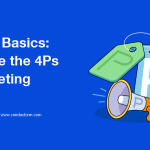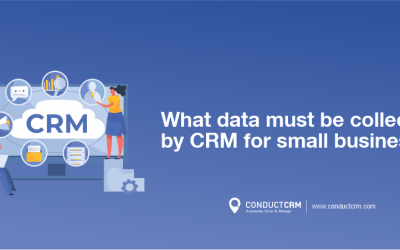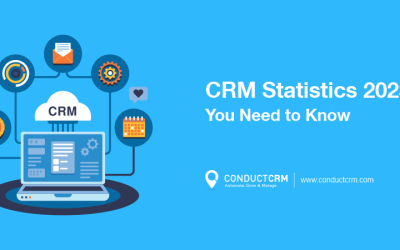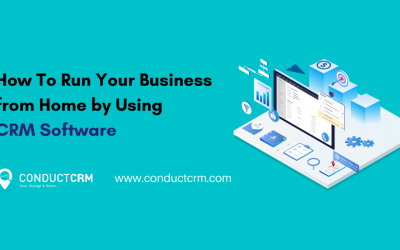CRM software useful for small business
Introduction
Growth is an undeniable part of our lives. We see it everywhere, from the flowers that grow in the spring to the businesses we grow and the titans in their fields, maybe even the Fortune 500 – reaching for the stars. Growth is the goal of sports, we are here to make you a professional sportsman. So we’d like to talk about flowers that bloom in spring, and we’ll cover the latter – CRM for small businesses.
Growth in the small business sector means more exposure, customers, revenue, and employees. However, as your small business grows, the process becomes more complex, the customer base grows, and the team’s responsibility for satisfying customers increases. This is where CRM for small businesses comes in to improve the overall communication channels, grow and organize their customer base, and make life easier for many departments through automation.
What is CRM for Small Businesses?
One of the most frequently used terms in the business world that is constantly changing is CRM or customer relationship management.
Its mission is to provide a good customer experience through the integration of sales, marketing, and other groups. Additionally, CRM software helps small businesses grow by automating processes and freeing up time for strategic activities.
Small Business CRM is a lightweight system designed to meet the needs of small businesses and individual entrepreneurs. Since small businesses do not require the same advanced, high-quality features as larger competitors in the market, CRM systems for small businesses are built based on simplicity and power.
There are no obvious differences between small business CRM and enterprise-level systems, but here are some common features that set them apart.
Work done: While corporate CRM includes in-depth analysis and other specialized modules, small business CRM focuses on features that improve, improve, and maintain communication.
It’s easy to set up: Small business CRM is easy to set up and performs better than enterprise-level CRM. Since many rely on the cloud, all businesses need to do to get started is to create an account, add members, and customize the system to their workflow and needs.
The course is short: Because of the simplicity of features, businesses can start with the features they really need and add more as they grow, meaning they won’t have to learn features they don’t need.
Affordable Price: As the CRM business grows into the most profitable software company in the world, the system becomes more and more expensive. However, the cost difference between small business and enterprise CRM can run into hundreds of dollars per month. Additionally, some small business platforms offer free plans with restricted features.
Why is CRM software important for small businesses?
If you are still wondering whether or not you need a CRM system, think no more because you do! CRM software can do it all, from better understanding your customers’ needs, to tracking every move a customer might make, to gaining analytical customer insights. A CRM system helps you plan your marketing strategy to attract new customers, build an effective sales channel, and launch programs to retain customers.
Small business CRM tracks customer buying behavior:
Your CRM dashboard is at the heart of your business, with comprehensive customer status, purchase history, and customer data. With so much information at your fingertips, it’s easy to analyze consumer buying habits. This allows you to create a personalized offer for them and increase their chances of coming back.
CRM for small businesses makes customer relationships strong and lasting:
Using the right CRM solution will help you track the behavior and behavior of your current and potential customers. To better understand buying power, patterns and when customers are most likely to buy, data collected using CRM is essential. With this profile, you can customize your products and services for each customer, allowing you to build and maintain long-term customer relationships.
A small business CRM makes it easy to create a customized process:
It also allows sellers to create a pipeline, so that anyone can shop with that experience. As a result, marketers are aware of every activity at every stage of the sales pipeline. In addition, many processes that do not require human intervention can be automated. This means that each system has its own triggers and actions, and the sales manager knows what to do in each situation.
CRM for small businesses supports effective marketing strategies:
With so much data available, it would be foolish not to use it to increase the impact and scale of your marketing campaigns. Store all leads in one CRM system and watch how they convert to customer payments. Create a pipeline for your marketing campaigns and calculate the ROI of each to determine the most effective advertising channels.
CRM for small businesses makes communication easier:
There are many different integrations for different CRM systems. If you integrate CRM with multiple communication channels that your customers use, you can significantly reduce response times. No matter where you get the message – email, chat website, social media – you’ve got all the customer information and are ready to help.
Small business CRM improves customer service:
Customers see your business as one company. If they talk to Tim on Tuesday and Wanda on Wednesday, they will only remember the brand name and their experience using the product. CRM collects all the information needed to solve customer problems before the customer gets angry. Then, as your customers grow, automatic reminders and notifications make sure no one is left out.
Small business CRM retains more customers:
CRM simplifies the collection of customer data through multiple assets creating a unified database that enables customer identification and improves lifetime value through a customized retention process. CRM helps you identify customer churn, reschedule call follow-ups, improve email marketing, and more. A simple 5% increase in your customer retention efforts can increase your profits from 25% to 95%; You don’t want to lose those numbers!
Do I really need a CRM?
Is it really necessary for a farmer to own a tractor? Does a chef’s knife really matter? Don’t we need a microphone, guitar, or blue suede shoes for Elvis? Not at all.
CRM systems help achieve many goals – from lead generation to customer retention. CRM, at its core, is a tool for managing contact databases and monitoring your relationships with existing and potential customers. They help you see the big picture; they help you understand exactly what emails should be sent and when based on where customers are in the buying journey and what their colleagues have told them.
Currently, there seem to be few limits to what CRM can do for a business. With any customer tracking system that can pull customer data from other sources, you may find yourself asking the same questions as your fellow small business owners…
But if they do not have these things, they will all be less likely to work and earn less money. They cannot grow without it. About 91% of companies with more than 11 employees use a CRM system, compared to 50% of companies with less than 10 employees, so whether you have 100 or 10 employees, you will reap the benefits of using a CRM system.
Conclusion
All businesses, regardless of their size or industry, need CRM software. CRM software helps companies deliver a consistent and engaging customer experience by connecting sales, marketing, customer support, and operations. If you need CRM software for your business then, Book your free demonstration now.

